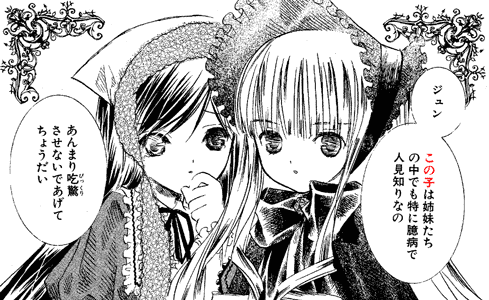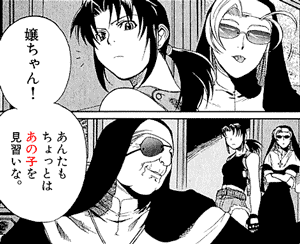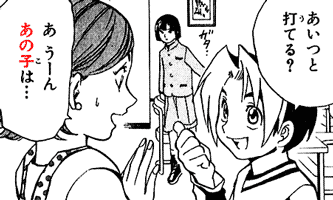Manga: Rozen Maiden, ローゼンメイデン (Chapter 10)
Usage
Literally, the words mean:- kono ko この子
This child. - sono ko その子
That child. (near you.) - ano ko あの子
That child. (not near you.)
However, they aren't used only toward children.
Most of the time, sono ko その子 is almost synonymous with sono hito その人, "that person," except for nuance:
- It's only used toward people younger than you, not older.
- Women use kono ko, sono ko, ano ko more often than men.
- The ko is usually female, too.
- Guy don't call other guys ko, but they may call girls ko, and girls may call guys ko.
- In romantic songs, ano ko is probably "that girl/boy" the speaker is in love with.
Also, the words may be spelled kono ko, sono ko, ano ko この娘, その娘, あの娘, with the kanji for "daughter," musume 娘, in which case it's always female, a girl, never male.
You may want to see how Ko 子 works and Kono, Sono, Ano この, その, あの for details.
Examples
For reference, some examples of ko 子 being used with kono, sono, ano.- sono ko wa doushita no?
その子はどうしたの?
What happened to that kid next to you?
What happened to [him]?
What happened to [her]?
Manga: Rozen Maiden, ローゼンメイデン (Chapter 10)
- Jun
ジュン
(Character name.) - kono ko wa shimai-tachi
no naka demo toku ni okubyou de
hito mi-shiri nano
この子は姉妹たちの中でも特に臆病で人見知りなの
Even among the sisters, this [girl] is particularly timid and afraid of strangers. - anmari bikkuri
sasenaide agete
choudai
あんまり吃驚させないであげてちょうだい
Please refrain from surprising her too much.
- bikkuri 吃驚 is a jukujikun 熟字訓.
- bikkuri 吃驚 is a jukujikun 熟字訓.
- Despite looking practically the same age, Shinku 真紅 (right) refers her sister Suiseiseki 翠星石 (left) as kono ko.
Manga: Black Lagoon (Chapter 9)
- Context: an old woman gives advice to an adult woman.
- jouchan!
嬢ちゃん!
[Hey]!- jouchan 嬢ちゃん
ojouchan お嬢ちゃん
Refers to a young girl. (younger than the speaker, at least.)
- jouchan 嬢ちゃん
- anta mo
chotto wa
ano ko wo
minarai na.
あんたもちょっとはあの子を見習いな。
You [should] learn a little more [from] that [boy].
Manga: Hikaru no Go ヒカルの碁 (Chapter 2, はるかな高み)
- Context: Hikaru is looking for an adversary.
- aitsu to uteru?
あいつと打てる?
Can [I] [play] with [him]?- utsu 打つ
To hit.
To play. (a game like Go, in which you hit stones on a board.)
- utsu 打つ
- gata.. ガタ・・
*chair feet hitting the floor as he gets up.* (onomatopoeia.) - a, uun, ano ko wa...
あ うーん あの子は・・・
Ah, err, [he] [is]...



No comments: